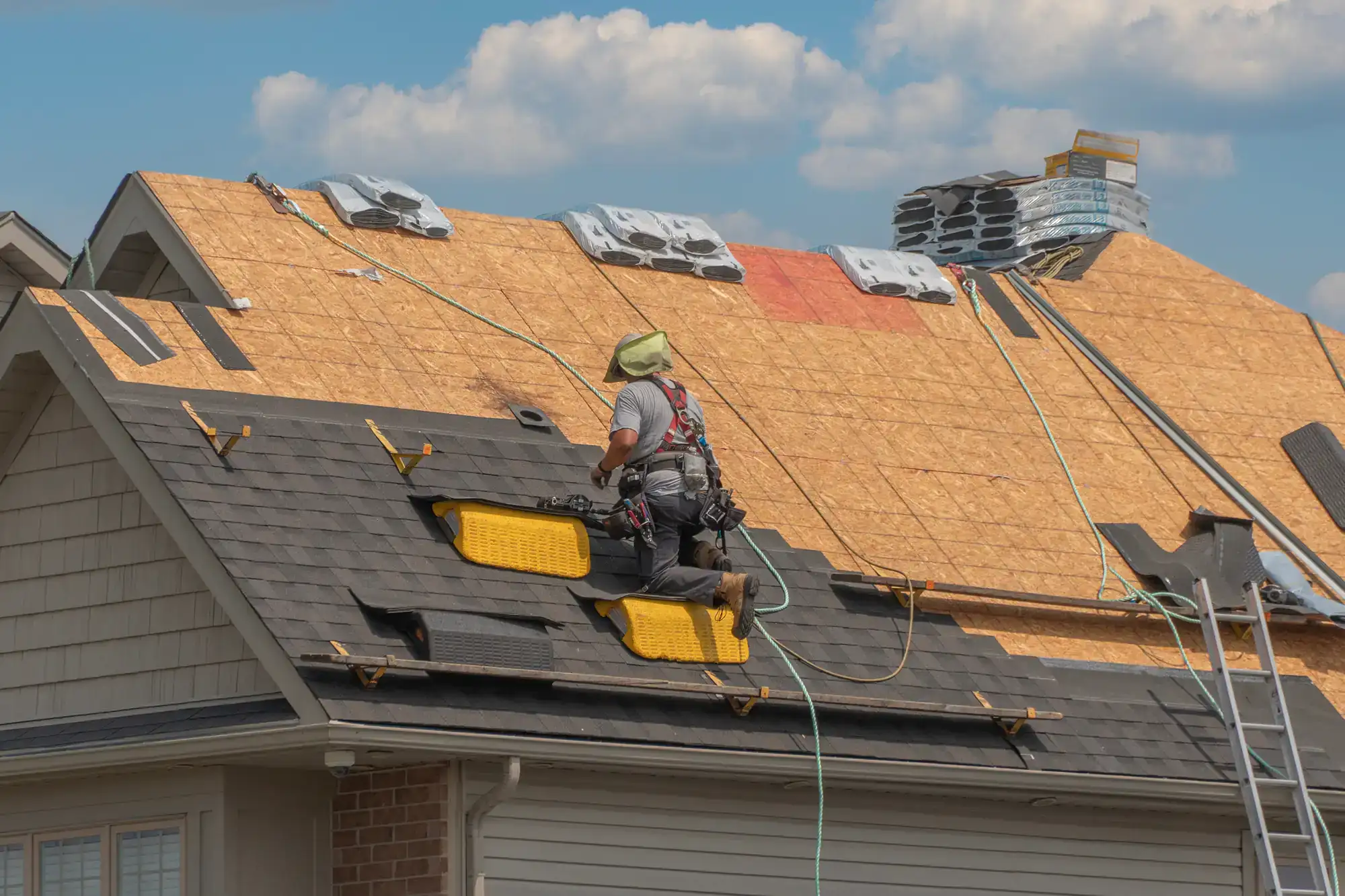
Hear from Our Customers
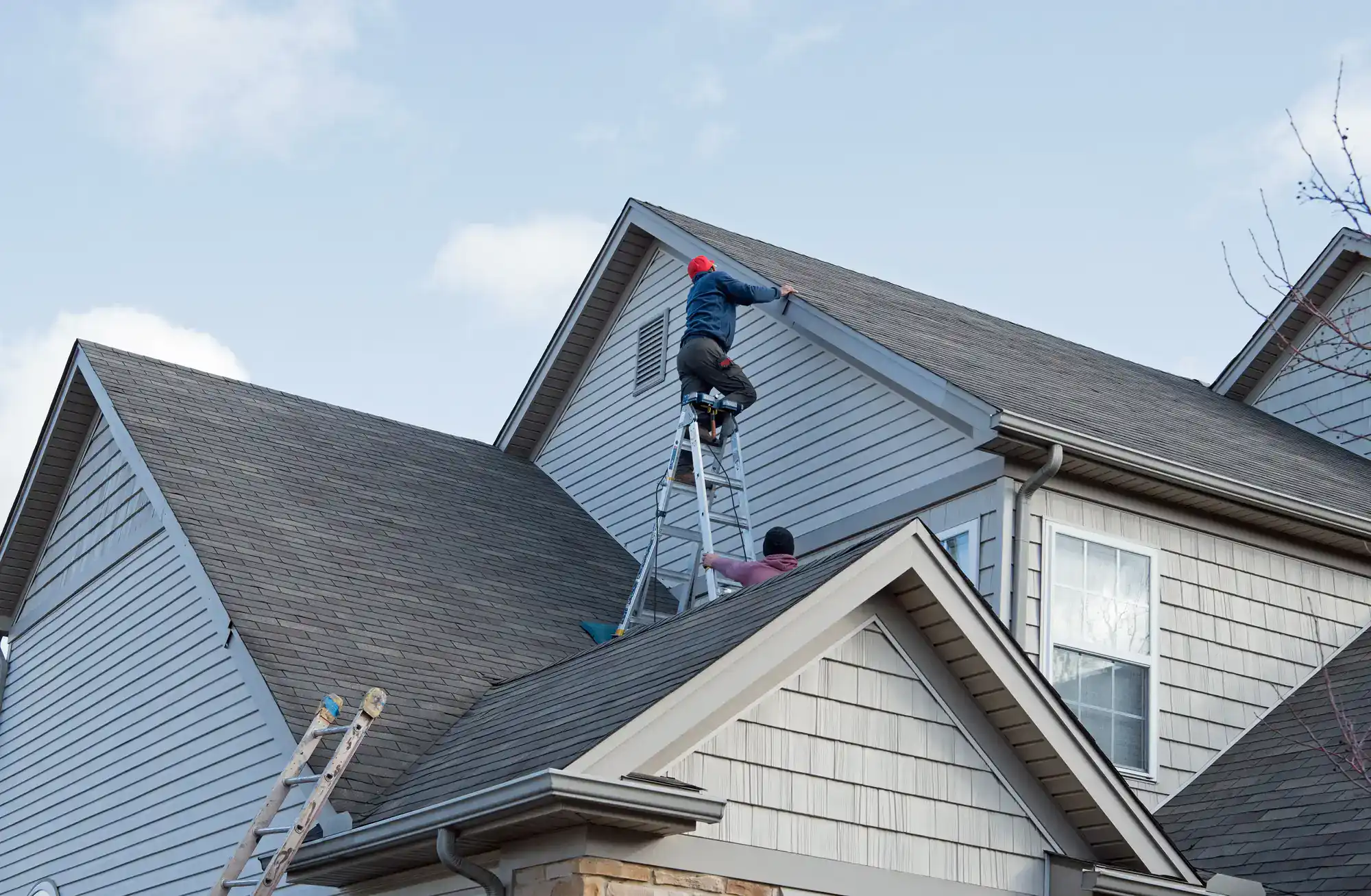
Your roof should protect your family, not keep you up at night wondering when the next leak will start. After 22 years of fixing roofs in Orient Point, we’ve seen what happens when homeowners wait too long to address problems.
A properly repaired or replaced roof means no more buckets catching drips during storms. No more wondering if that water stain on your ceiling is getting bigger. No more emergency calls to contractors who may or may not show up when you need them most.
When we finish your roofing project, you get peace of mind that lasts. Your energy bills stay predictable because your roof actually insulates your home. Your insurance company stays happy because your roof meets current standards and can handle whatever Long Island weather throws at it.
We’ve been protecting Orient Point homes since before most roofing companies even existed in this area. We’re the local crew your neighbors call when they need their roof fixed right.
As a family-owned business, we understand that your roof is more than just shingles and flashing—it’s what keeps your family safe and your biggest investment protected. We’ve weathered every major storm that’s hit Orient Point in the past two decades, and we’ve helped hundreds of families get back to normal after the worst weather Long Island can dish out.
Being local means we’re here when you need us, not just when it’s convenient for us. We know which roofing materials hold up best against salt air and high winds because we’ve installed them all and seen what works long-term in this specific climate.
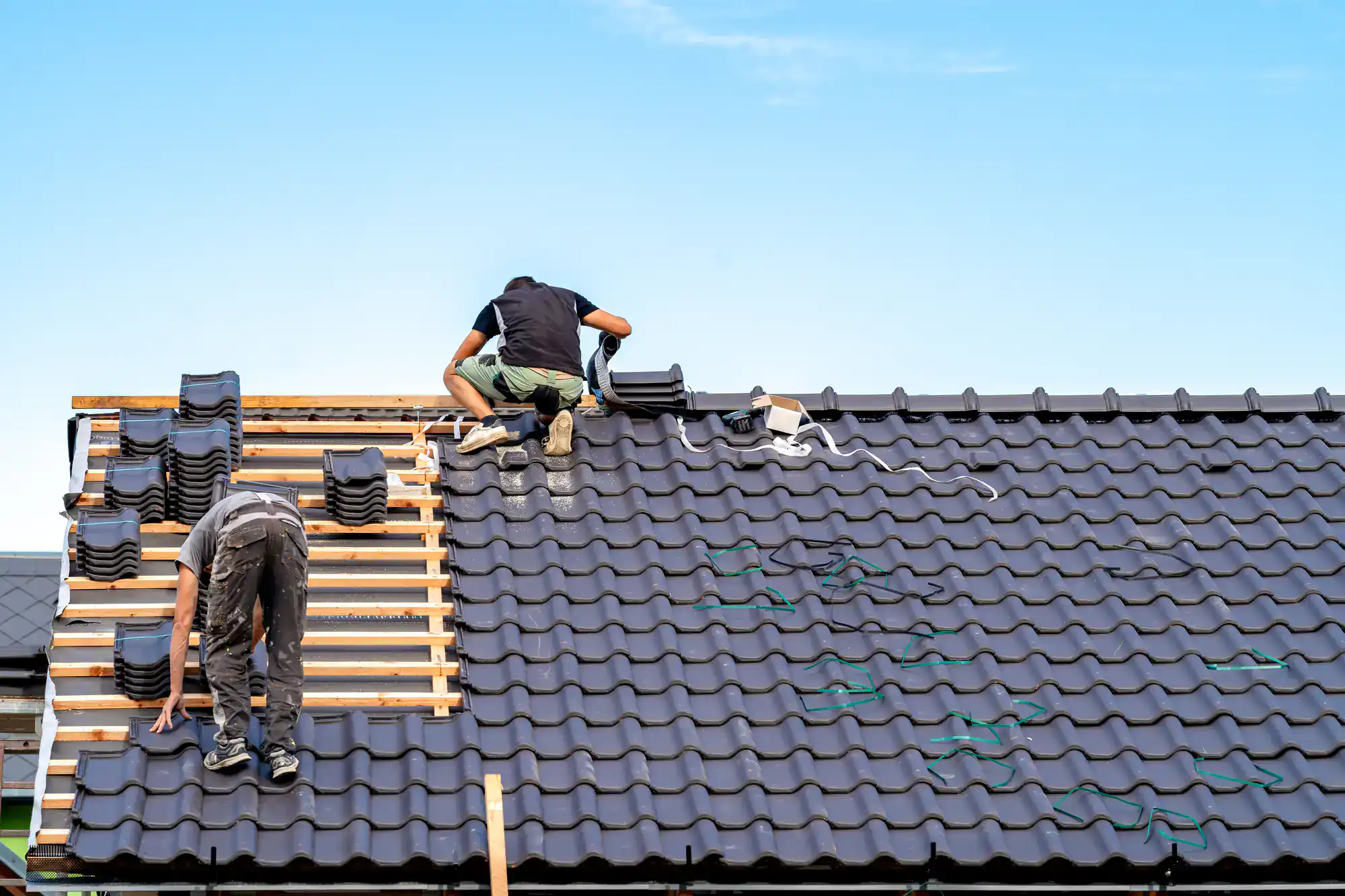
We start with a thorough inspection of your entire roof, not just the obvious problem areas. Most leaks start small and hide behind what looks like perfectly good roofing, so we check everything from your gutters to your flashing to your shingles or tiles.
You get a complete assessment of what needs immediate attention and what can wait. We explain exactly what we found, what caused the problems, and what it’ll take to fix them permanently. No technical jargon, no pressure tactics—just straight answers about your roof’s condition.
When we do the work, we handle everything from permits to cleanup. Our crew shows up when we say we will, works efficiently without cutting corners, and leaves your property cleaner than we found it. You’ll know the job is done right because we guarantee our workmanship and use materials that are built to last in Orient Point’s coastal environment.
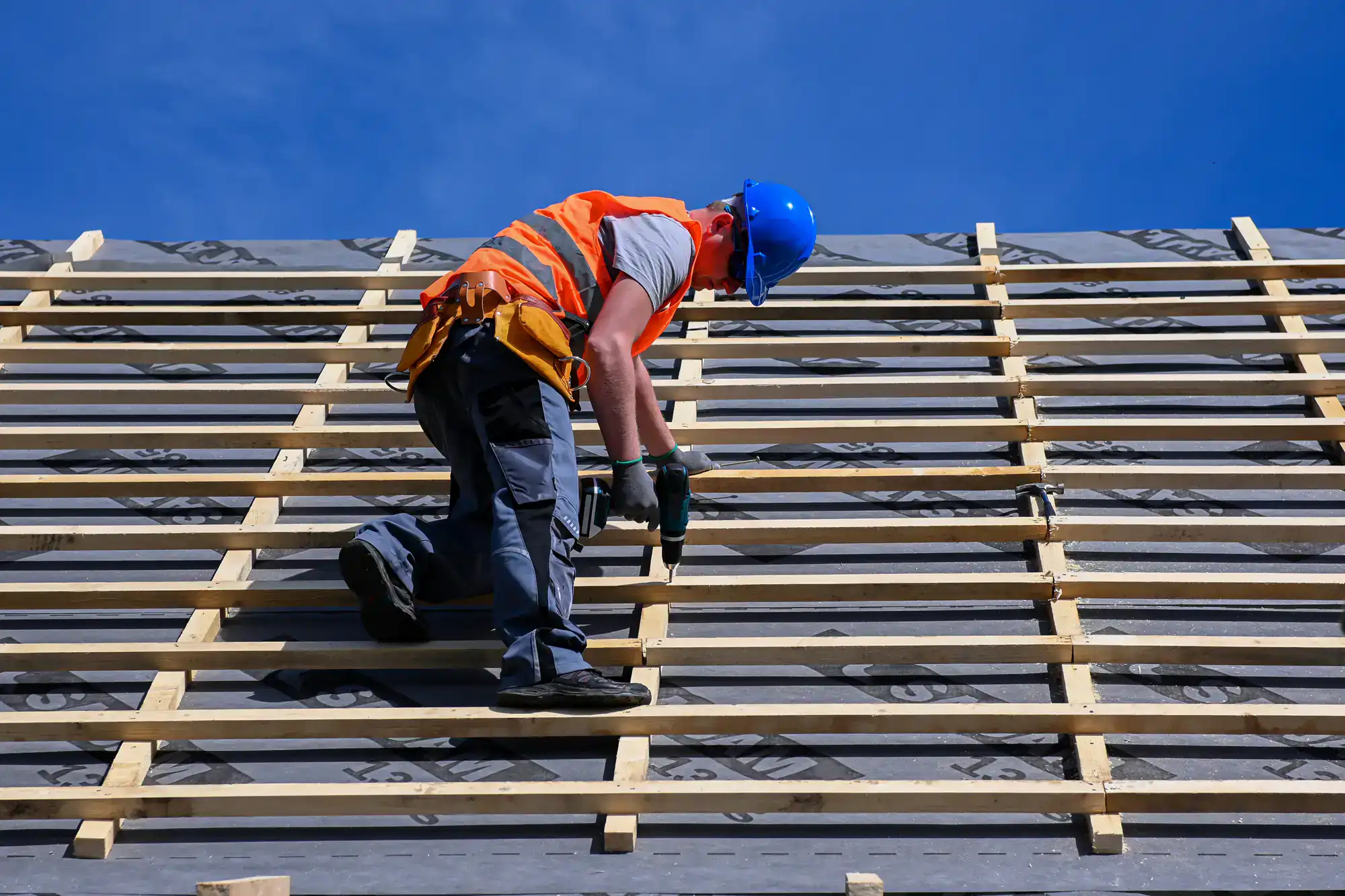
Ready to get started?
We repair and replace all roofing materials common in Orient Point: asphalt shingles, metal roofing, flat roofs, and tile systems. Each material has specific challenges in our coastal climate, and we’ve developed techniques that address the salt air, high winds, and temperature swings that affect roofs differently here than inland.
Storm damage is unfortunately common in Orient Point, so we maintain emergency response capabilities. When a hurricane or nor’easter damages your roof, we can typically respond within 12-24 hours to prevent further damage to your home’s interior. We also work directly with insurance companies to streamline the claims process.
Beyond emergency repairs, we provide regular maintenance services that catch small problems before they become expensive disasters. Orient Point’s weather is tough on roofs, but proper maintenance can extend your roof’s life significantly and help you avoid the stress and cost of unexpected major repairs during the worst possible weather.
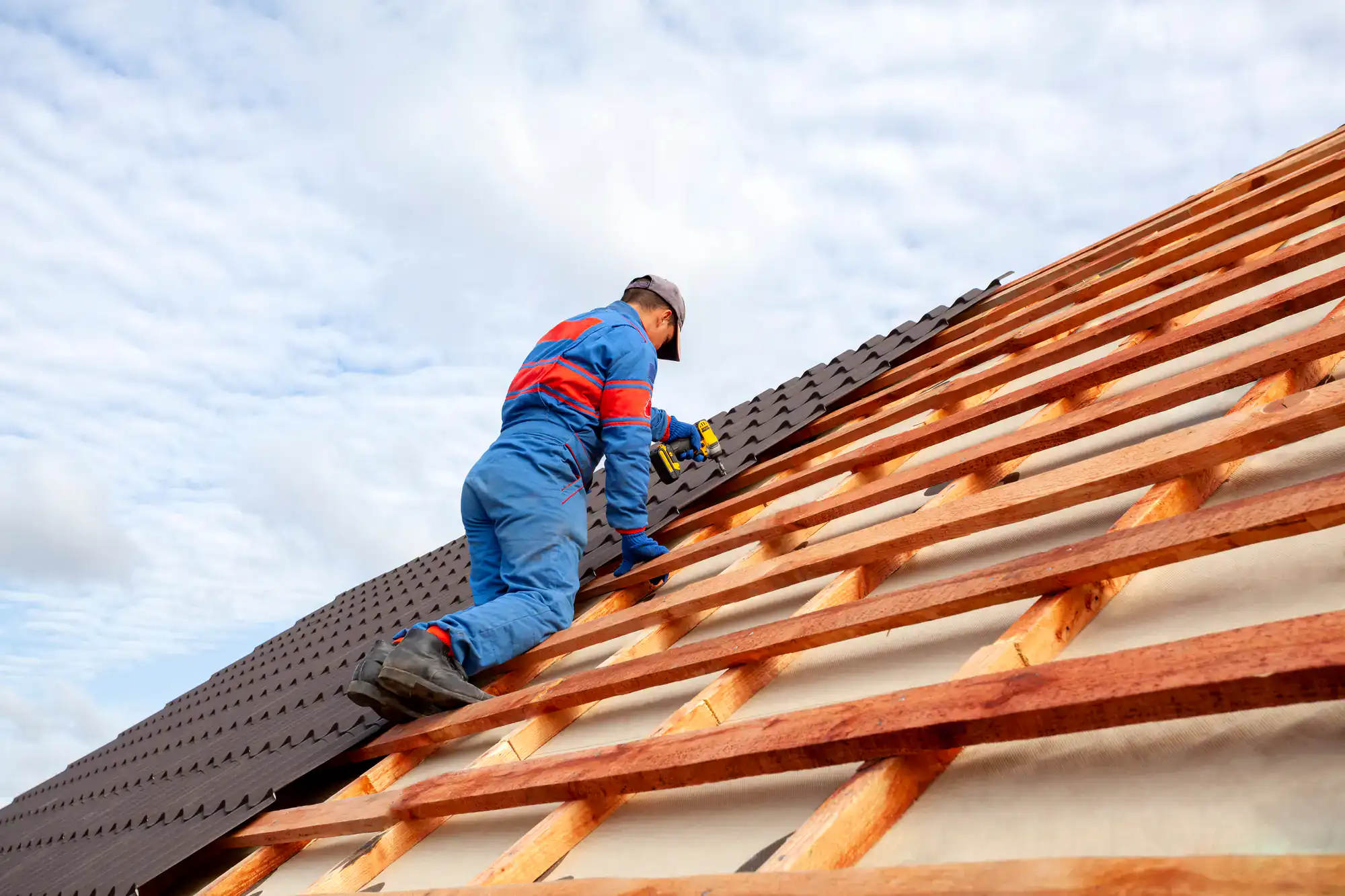
We typically respond to emergency calls in Orient Point within 12-24 hours, often faster during major storm events. Our emergency response focuses on preventing further damage to your home’s interior while we assess what permanent repairs are needed.
We keep emergency materials in stock specifically for storm damage situations, so we can often provide temporary weatherproofing immediately and schedule permanent repairs within days rather than weeks. During major storm events that affect multiple homes, we prioritize calls based on safety concerns and the extent of interior damage.
Our emergency service includes temporary tarping, water damage prevention, and securing loose roofing materials that could cause additional problems. We document everything for insurance purposes and provide detailed estimates for permanent repairs once the immediate emergency is handled.
Orient Point’s salt air, high winds, and temperature fluctuations require specific roofing materials and installation techniques. Metal roofing performs exceptionally well here because it resists corrosion and handles high winds better than most alternatives, though it requires proper installation to prevent noise issues.
Asphalt shingles work well if they’re rated for high wind speeds and installed with enhanced fastening systems. We typically recommend architectural shingles over basic three-tab shingles because they’re more durable and less likely to lift in high winds. The key is using shingles rated for at least 110 mph winds.
Flat roofing systems need special attention in coastal areas. We use modified bitumen or EPDM systems with enhanced drainage because standing water combined with salt air accelerates deterioration. Proper slope and drainage are critical for flat roofs in Orient Point to prevent premature failure.
Yes, we work directly with insurance companies and have extensive experience with storm damage claims in Orient Point. We document all damage thoroughly with photos and detailed reports that insurance adjusters need to process claims efficiently.
We can meet with your insurance adjuster on-site to ensure they see all the damage, including problems that aren’t immediately obvious. Many insurance adjusters aren’t roofing experts, so having us there helps ensure nothing gets missed that could affect your claim settlement.
We provide detailed estimates that break down materials and labor costs in the format insurance companies expect. This speeds up the approval process and helps you get the coverage you’re entitled to. We also handle any follow-up questions or additional documentation your insurance company might request during the claims process.
Roof lifespan in Orient Point depends heavily on the material and installation quality, but coastal conditions generally reduce expected lifespans compared to inland areas. Asphalt shingles typically last 15-20 years here versus 20-25 years inland, primarily due to salt air and UV exposure.
Metal roofing can last 40-50 years in Orient Point if properly installed and maintained, making it often the most cost-effective long-term choice despite higher upfront costs. The key is ensuring proper fastening and using marine-grade materials that resist corrosion.
Flat roofing systems generally need replacement every 10-15 years in our climate, though proper maintenance can extend this somewhat. The combination of standing water potential and salt air makes flat roofs more vulnerable, so regular inspections and prompt repairs are essential for getting maximum life from these systems.
Local experience is crucial in Orient Point because coastal roofing requires specific knowledge about salt air corrosion, high wind installation techniques, and drainage requirements. A contractor who primarily works inland may not understand these unique challenges.
Verify licensing and insurance, but also check their track record with storm damage repairs. Orient Point gets hit by major storms regularly, so you want contractors who have proven they can handle emergency situations and work efficiently with insurance companies.
Look for contractors who can provide local references from recent projects, especially storm damage repairs. Ask about their emergency response capabilities and whether they stock materials locally. During major storm events, contractors who have to travel long distances or order materials from far away will leave you waiting much longer for repairs.
Orient Point’s harsh coastal conditions make annual roof inspections essential, with additional inspections after major storms. Salt air and high winds cause faster deterioration than typical inland conditions, so problems develop more quickly here.
We recommend spring inspections to assess winter storm damage and prepare for hurricane season, plus fall inspections to ensure your roof is ready for winter weather. After any storm with winds over 60 mph, you should have your roof inspected even if you don’t see obvious damage.
Professional inspections catch problems like loose flashing, damaged seals around vents and chimneys, and subtle shingle damage that leads to leaks if not addressed promptly. In Orient Point’s climate, small problems become expensive disasters much faster than in more protected inland areas, so early detection saves significant money and stress.